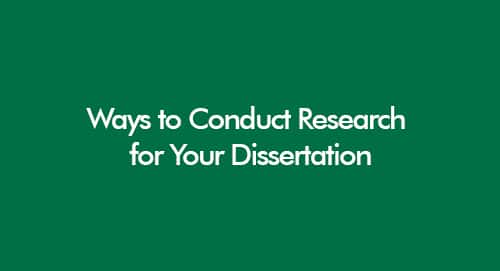
Plagiarism Checker Free Service That You Can Use Multiple Times With No Word Count Limit
October 5, 2022
Plagiarism Remover Service That Can Help You Remove Plagiarism from Academic Papers Immediately
October 6, 2022The findings and conclusions of the study are presented in the discussion section. An insightful commentary explains to readers what may be inferred from your research and gives context to the findings. Transform your report's discussion section into a powerful narrative with our expert guidance. Explore our blog post on 'How to Write a Discussion in a Report' to craft insightful and engaging insights.
Explore What are the Key Areas to Emphasize in a Report's Discussion Here
It has to concentrate on summarizing and analyzing what you discovered, demonstrating how it pertains to your literature review, and formulating an argument for your conclusion. It shouldn't have its own results page.
Learn How to Write a Discussion in a Report Here
Writing a discussion in a report is crucial for researchers and scholars. There are several approaches to writing this part, but you should centre your work on the following crucial ideas:
- Summary: A concise summary of your primary outcomes.
- Interpretations: What do your findings conclude?
- Implications: Why do your outcomes matter?
- Limitations: What are your results not able to tell us?
- Recommendations: Routes for more research or analysis
What Makes a Discussion Effective?
The discussion educates readers on the study's broader implications in light of the findings. When submitting to a publication that chooses papers based on novelty or prospective effect, it can be difficult to highlight these implications without overstating the findings.
Gain Insights into What Constitutes a Good Discussion Section Here
The discussion section always concludes what your study's results imply, irrespective of the journal you submit to.
A good discussion section contextualizes your findings. It should contain:
- The results of your study,
- An examination of related academic work, and
- A comparison of your findings with your original theory.
How to Structure a Discussion Section.
The most important part of the learning process of how to write a discussion in a report is mastering how to structure a discussion section.
Summarize Your Research
Reiterate your research question at the beginning of this section and briefly summarize your key results. Instead of just restating all the information you have previously provided, try to give a concise summary of the overall finding that directly addresses your primary research question. There should only be one paragraph in this.
The distinctions between a discussion part and a results section are difficult for many students to understand. The key is to provide your results in your conclusion section and analyze them subjectively in your discussion. To keep your paper crisp, try not to combine the components of these two sections.
Share Your Opinions
Even if the relevance of your findings may seem clear to you, it's crucial to explain it to your reader by demonstrating how they directly address your research topic.
Using the same format as your research section, you might arrange your discussion around major elements, hypotheses, or research topics. You can alternatively start by emphasizing the most important or unexpected findings.
Discuss the Implications of the Research
Be careful to link your findings to the academic works you reviewed in the literature review and provide your personal opinions. The discussion should demonstrate how your results fit our current understanding, what fresh insights they add, and what implications they have for theory or practice. The reader should be notified of the precise contribution that your study has made and why they should care.
Understand the Limitations
Even the most thorough research has specific limitations. It's crucial to acknowledge these in order to establish your trustworthiness. Limitations aim to depict what can accurately and cannot be inferred from your study rather than just listing your mistakes.
Limitations may result from the general study design, particular methodological decisions, or unexpected challenges that surfaced throughout the research process.
Share Your Recommendations
You can offer suggestions for practical applications or more studies based on the discussion of your findings. The suggestions are occasionally reserved till the end.
The constraints might immediately result in recommendations for more study. Don't just say that additional research should be done; provide specific suggestions for how future work may expand on the subjects that your current study was unable to cover.
Do’s and Don'ts While Writing Your Discussion
While the parts mentioned above can aid in your brainstorming and help you organize your discussion, authors make several frequent mistakes when experiencing problems with their papers.
Figure out What are the Challenges encountered in Discussion Writing
It could be challenging to strike the right balance while writing a discussion between summarizing your findings, giving appropriate context for your research, and avoiding presenting new material. Remember that your article should deliver the results with confidence and sincerity!
Do’s:
- Start by clearly stating the significant findings. It will support the reader's primary takeaway and lay the groundwork for the remaining discussion.
- Describe why the reader should care about your study's findings. Discuss the implications of your results in light of prior literature highlighting both the research's advantages and disadvantages.
- Indicate if the findings support or refute your theory. What may be the causes if your theory was found to be incorrect?
- Introduce fresh or broader approaches to considering the research subject. List the possible next actions for pursuing any unanswered questions.
- When addressing a current or persistent issue, like global warming, go over the various repercussions of finding a solution.
- Be succinct. Including irrelevant stuff might overshadow the primary conclusions.
Don’ts
- Add new arguments or supporting information that was not previously mentioned. Introduce pertinent data and supporting arguments in the paper's main body.
- Don't weaken your authority by adding statements that doubt your technique or execution, even if your study has serious shortcomings.
- Don't be afraid to mention limitations or negative outcomes. Readers will fully grasp the provided study if limits and bad outcomes are highlighted. Potential drawbacks include potential sources of bias, dangers to internal or external validity, difficulties putting an intervention into action, and other problems arising from the nature of the study design.
- Do not repeat your findings in whole sentences. Use "bridge phrases" that connect the result to the interpretation if you need to remind the reader of the finding to be addressed.
- The discussion of your work can also contain recommendations for more research, but do not repeat them there.
- Do not add new results to the discussion. Be careful not to mistake a finding's repetition for an interpretation.
Conclusion
You should have a second person read your work to make sure it makes sense; if not, it probably has to be revised. To summarise, remember that the main purpose of writing a scientific discussion is to highlight your findings. So, take the time to ensure it is comprehensive, concise, and relevant. Want to know more about how to write a discussion in a report? Drop us a message, and we will help you with whatever you need to learn about report writing!
Get 3+ Free Dissertation Topics within 24 hours?



























